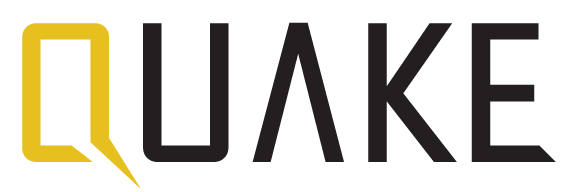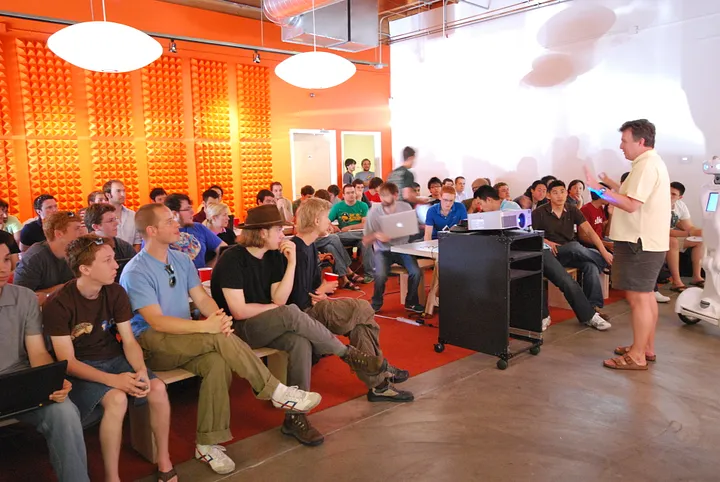We had the honor of hosting our first virtual fireside chat on leadership with Roger O. Goldman, a wise mentor and good friend. We transcribed our chat because it was too good not to share and although the focus of our conversation adjusted with the global pandemic, the fundamentals of inspired leadership remain the same.
Introduction: Roger has over 40 years experience as an operator in building high performing leadership teams and turning around struggling executive management teams as a CEO of early and later stage companies. He has spent over a decade in numerous leadership roles with American Express National Bank FSB including as Chairman of the Board, leading through the 2008-09 financial crisis. In addition, he served as Chairman of the Board of Lighthouse International, a leading non-profit in the area of low vision. Roger is also a board member and advisor, author, executive mentor and angel investor in several early stage companies. Welcome Roger.
Roger: Thanks.
Amy: So many of our leadership skills are developed early on. What were the skill sets in your early lifetime that really lent itself to becoming a leader of a global company like American Express?
Roger: The earliest leadership lesson was in college where I learned that I could convince people to listen to me. I coupled that with what I learned in law school: that 50% of all problems are defined incorrectly. And if you don’t define the problem correctly, you will not get the right solution. Leadership is about defining reality, giving hope and then never giving up.
Amy: AMEX has such an interesting history of innovation, starting in 1850 as an Express Mail company. What changes did you see after joining AMEX in 2005?
Roger: First off, when I consider a business, I think about three elements. One is what is the culture of the place? Second, what are the key business processes, such as with control, profitability, growth? Finally, third, what’s the substance of the business? The answers to those questions are what’s in the secret sauce of such a great company like AMEX. I say that because while AMEX’s culture has never changed, their business model undergoes a successful transformation every 20-30 years because they are always very attuned to what’s happening in the world. The revenue stream went from traveler’s checks, to plastic, to payments and credit cards, and soon it’ll be a very digital company because they’ve understood at their core what the essence of their business is. Their ability then to pivot successfully and quickly to the market is anchored in their culture of “figure it out and make it happen.”
Amy: What are some key things to look for to create the right dynamic of advisors and board members?
Roger: In an early stage, the company needs an accountant, a lawyer, a good bank, and other good partners. But they also need the right investors. And I would tell you that one of the mistakes I have made along the way is taking money from investors who were the wrong kinds of investors. In a young company, confusing a board role and an investor role is quite common, and often destructive.
Amy: How have you handled crisis management at the board level of major companies and startups?
Roger: While I was running the top #15 bank, we were unexpectedly sold to a competitor who had a very different framework for going forward. We were a US subsidiary of a foreign bank and the foreign bank decided to sell the US subsidiary, and it didn’t tell any of us. So, I had a couple of decisions to make. One was, what was I going to do? And the second was, what was the right thing to do with the 8000 people working for me? I decided it was a gut check on who I was. So the first thing I did is ask, “where’s the lesson here for my people?” And the lesson was that every day is the only day that’s given to us. It was going to be a new chapter, and we didn’t control the new chapter, but how are we going to behave with what we could control? You have to be the best person you can be today, control what you can control, and not worry about the rest of it.
Amy: What are some key tools you have used to manage a crisis at the Board level?
Roger: One – I’m going to deal with what I have to deal with today. This means I work to define what I know and what I don’t know. Then, I’ll get as many people in the company involved in making the decisions as necessary and push authority downstream. Two – I’m also going to keep an eye on what the world is likely to look at when we get to the other side of the crisis and how do I take advantage of that now? This is particularly important, since most companies have a knee jerk reaction to deal with today and not tomorrow. Third – I prioritize the elements in the overall business ecosystem consisting of your employees, customers, communities, and shareholders. One company has decided to not have any layoffs regardless of the impact on short term earnings to keep their employees loyal through the other side of the crisis. Another company is a major law firm who decided to cut the pay of their non-partner employees by 25%, but not their partner’s pay. So what’s going to happen to these companies as the economy gets better? The first company is going to come out of this with the company morale intact and a workforce ready to work. The law firm’s people are going to have less loyalty to the firm because the firm has proven they’re not particularly loyal to them. During a crisis, the first critical piece of that ecosystem is your employees. So, you spend a lot of time on what’s happening with my employee base. How is everybody doing? That really is the critical element. It always really comes back to the issue of, not what do you do, but who do you do it with?
Amy: How are you approaching this time in the companies that you are invested in? What are some of your skill sets that you’re transitioning into this next chapter?
Roger: It’s all another chapter, you know, you just keep moving. All kinds of interesting doors open up and all kinds of interesting people get into your life. I’m an investor in two AI companies. I can barely use a computer and here I am learning about artificial intelligence and the difference between artificial intelligence and machine learning, and I just keep learning every day. I mean, the world is just a fascinating place. And I think each of us has to decide whether the guiding principle of our life is love or fear. I really think it’s that basic. And I decided along the way that the guiding principle in my life is love. And so that’s the way I present myself.
Quake Team: Can you go more into operating out of love? I think it’s really important.
Roger: I think if you’re operating out of fear, you don’t spend time finding the underlying issue. Under fear, you jump to trying to solve the problem too soon because you want to create the “quick win”. Your anxiety and fear kicks in and you say, “I have to move on. I have to solve this problem.” Henry Kissinger says, “Not all problems are solvable. And not all problems are understandable.” If you just accept the fact that you’re a grain of sand, and the issue is not external results, but rather what keeps you in tune with yourself. With operating out of love, I think you just get happier. I care deeply what other people think of me. But I care even more deeply about what I think of myself. I’m a great manager, and I’m a great leader and I have the track record to prove it, but I can tell you that if you do the right things, the right results will happen. So, the question is in any situation, what are the right things? And then you have to go about it with a high intensity. Once you decide what you have to do, you have to go at it with an intensity level that most people don’t bring, because most people don’t have that level of commitment. Then, if you fail, you have to very quickly say, what are the lessons I learned? And then move on. The brain is a wonderful part of the human anatomy as it is capable of rewiring. The thing that makes us different from lower animals is we can acknowledge our emotions and then plug in our intellect to move on. Whereas lower animals cannot do that. They act on emotion and impulse. We have to learn as individuals to control that and make it work for us.
Amy: This has been such an insightful conversation. Thank you for sharing with all of our teams. We really appreciate it.


